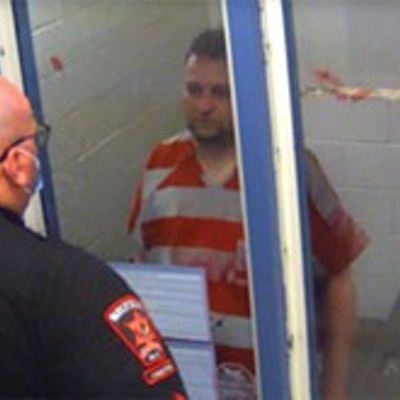Many more “heroics” may be required
[
{
"name": "Air - MedRect Combo - Inline Content 1",
"component": "11490391",
"insertPoint": "3",
"requiredCountToDisplay": "1",
"parentWrapperClass": "fdn-ads-inline-content-block"
},{
"name": "Air - MedRect Combo - Inline Content 2",
"component": "11490392",
"insertPoint": "7",
"requiredCountToDisplay": "5",
"parentWrapperClass": "fdn-ads-inline-content-block"
},{
"name": "Air - MedRect Combo - Inline Content 3",
"component": "11490393",
"insertPoint": "12",
"requiredCountToDisplay": "9",
"parentWrapperClass": "fdn-ads-inline-content-block"
}
]
Nobody, and I mean nobody, ever thought that Gov. Bruce Rauner’s administration could ever keep state operations running for a year without an actual state budget.
State and federal courts have ordered about 90 percent of state spending since the General Assembly’s Democrats and the Republican governor deadlocked on a budget last year because they couldn’t come to terms on the governor’s pro-business/anti-union Turnaround Agenda. Because of those court orders, employees are getting paid and Medicaid payments are being made, among other things.
When Gov. Rauner put aside his demands for things like workers’ comp reform before he’d do a budget deal, he and legislators were able to agree on releasing funds for local governments and federal programs, and they appropriated some money for universities and colleges.
But state government operations have been hammered. If the air conditioning goes out in a state building and it can’t be fixed in-house, too bad. Lack of money for postage and printing costs forced the Secretary of State to suspend sending out reminder notices for license plate renewals. Enormous overdue utility bills have been piling up. The Department of Corrections uses private contractors to provide things like food for prisoners, and none of them have been paid since last year.
Rauner bragged last week to reporters that keeping the state functioning is a result of “an extraordinary performance by the leaders in our team.”
“We’re doing heroic things,” Rauner claimed.
Ever since Rauner asked legislative Democratic leaders for a temporary “stopgap” budget for bureaucratic operations in April, the Democrats have viewed the request as a sign of potential weakness and have so far refused to comply. Rauner has claimed the Democrats are attempting to force a crisis via a state shutdown. The Democrats counter that Rauner himself has been trying to create a crisis to leverage passage of his Turnaround Agenda.
So, how is the administration managing to – literally – keep the lights on?
The Rauner administration has a team of people that works on these issues and has developed all sorts of contingency plans. One of the departments they really have to watch all the time is Corrections. Some little state board might go under and almost nobody would notice. But if the state can’t feed prisoners, well, that could be really bad.
The administration has been using a special loan fund to help some prison contractors get through this rough patch. The vendors can sell their debt to a company for most of what they’re owed, which can keep them limping along.
Every now and then, the governor’s office will get calls from mayors of Downstate prison towns who sometimes seem to have been ginned up by the Democrats. A water shutoff or some such thing is threatened unless the towns receive payment on their overdue bills. The mayors are asked to please be patient while the leaders work on a budget.
If kindness doesn’t work, the mayors are sternly warned that the state won’t be able to operate a prison without water, so prisoners will have to be moved to other facilities. And once they leave, they won’t ever be coming back. Rauner, the mayors are told, believes we have too many people behind bars anyway. And, besides, once the facility is abandoned, the state would have to comply with much stricter building and safety rules if it wanted to reopen the prison. That would cost lots of money that the state simply doesn’t have.
And, of course, if the prison permanently goes away, so will all those local jobs and the facilities’ huge economic impacts. So, a mayor can shut off the water over a past-due bill, but that’ll turn out to be the most costly utility
shut-off in the history of that town. So far, it’s worked.
As I write this, Mt. Sterling is facing this very dilemma. The tiny town of less than 2,000 people is owed $300,000 to $400,000 (depending on whom you talk to) for water service to the 2,000 inmates at Western Illinois Correctional Center. They’re desperate for the money, but they also, obviously, don’t want to lose those jobs.
We could be reaching a turning point. The Department of Corrections director predicted in an early June newspaper op-ed that prison vendors will eventually have to pull their services, which could, he warned, “cripple the department in a matter of days.”
The administration will have to get even more “heroic” if that happens.
Rich Miller also publishes Capitol Fax, a daily political newsletter, and CapitolFax.com.
State and federal courts have ordered about 90 percent of state spending since the General Assembly’s Democrats and the Republican governor deadlocked on a budget last year because they couldn’t come to terms on the governor’s pro-business/anti-union Turnaround Agenda. Because of those court orders, employees are getting paid and Medicaid payments are being made, among other things.
When Gov. Rauner put aside his demands for things like workers’ comp reform before he’d do a budget deal, he and legislators were able to agree on releasing funds for local governments and federal programs, and they appropriated some money for universities and colleges.
But state government operations have been hammered. If the air conditioning goes out in a state building and it can’t be fixed in-house, too bad. Lack of money for postage and printing costs forced the Secretary of State to suspend sending out reminder notices for license plate renewals. Enormous overdue utility bills have been piling up. The Department of Corrections uses private contractors to provide things like food for prisoners, and none of them have been paid since last year.
Rauner bragged last week to reporters that keeping the state functioning is a result of “an extraordinary performance by the leaders in our team.”
“We’re doing heroic things,” Rauner claimed.
Ever since Rauner asked legislative Democratic leaders for a temporary “stopgap” budget for bureaucratic operations in April, the Democrats have viewed the request as a sign of potential weakness and have so far refused to comply. Rauner has claimed the Democrats are attempting to force a crisis via a state shutdown. The Democrats counter that Rauner himself has been trying to create a crisis to leverage passage of his Turnaround Agenda.
So, how is the administration managing to – literally – keep the lights on?
The Rauner administration has a team of people that works on these issues and has developed all sorts of contingency plans. One of the departments they really have to watch all the time is Corrections. Some little state board might go under and almost nobody would notice. But if the state can’t feed prisoners, well, that could be really bad.
The administration has been using a special loan fund to help some prison contractors get through this rough patch. The vendors can sell their debt to a company for most of what they’re owed, which can keep them limping along.
Every now and then, the governor’s office will get calls from mayors of Downstate prison towns who sometimes seem to have been ginned up by the Democrats. A water shutoff or some such thing is threatened unless the towns receive payment on their overdue bills. The mayors are asked to please be patient while the leaders work on a budget.
If kindness doesn’t work, the mayors are sternly warned that the state won’t be able to operate a prison without water, so prisoners will have to be moved to other facilities. And once they leave, they won’t ever be coming back. Rauner, the mayors are told, believes we have too many people behind bars anyway. And, besides, once the facility is abandoned, the state would have to comply with much stricter building and safety rules if it wanted to reopen the prison. That would cost lots of money that the state simply doesn’t have.
And, of course, if the prison permanently goes away, so will all those local jobs and the facilities’ huge economic impacts. So, a mayor can shut off the water over a past-due bill, but that’ll turn out to be the most costly utility
shut-off in the history of that town. So far, it’s worked.
As I write this, Mt. Sterling is facing this very dilemma. The tiny town of less than 2,000 people is owed $300,000 to $400,000 (depending on whom you talk to) for water service to the 2,000 inmates at Western Illinois Correctional Center. They’re desperate for the money, but they also, obviously, don’t want to lose those jobs.
We could be reaching a turning point. The Department of Corrections director predicted in an early June newspaper op-ed that prison vendors will eventually have to pull their services, which could, he warned, “cripple the department in a matter of days.”
The administration will have to get even more “heroic” if that happens.
Rich Miller also publishes Capitol Fax, a daily political newsletter, and CapitolFax.com.
Illinois Times has provided readers with independent journalism for almost 50 years, from news and politics to arts and culture.
Your support will help cover the costs of editorial content published each week. Without local news organizations, we would be less informed about the issues that affect our community..
Got something to say?
Send a letter to the editor and we'll publish your feedback in print!






















